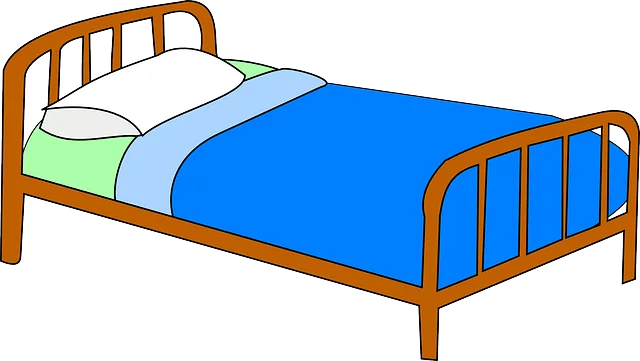Unlocking Mental Well-being: Mastering CBT Therapy for Depression and Anxiety
CBT therapy is an evidence-based psychotherapy that tackles depression and anxiety by identifying an…….

CBT therapy is an evidence-based psychotherapy that tackles depression and anxiety by identifying and changing negative thought patterns, providing practical coping strategies, and empowering individuals to actively participate in their healing. Through structured sessions, CBT teaches cognitive restructuring, behavioral activation, exposure therapy, and mindfulness techniques, offering immediate relief and long-lasting skills for managing mental health issues. Despite misconceptions, CBT is an effective, tailored approach that can be integrated into daily life, reducing depressive and anxious episodes with consistent practice. Finding a qualified CBT therapist is crucial for successful management of these conditions.
“Discovering CBT Therapy for Depression and Anxiety Relief: A Comprehensive Guide. Cognitive Behavioral Therapy (CBT) offers a powerful approach to managing mental health challenges, focusing on identifying and changing negative thought patterns. This article explores the effectiveness of CBT in treating depression and anxiety disorders. You’ll learn how CBT rewire your brain, understand common cognitive distortions, and discover practical techniques used in sessions. From benefits and potential challenges to integrating CBT into daily life, this guide equips you with knowledge for a transformative journey towards well-being.”
Understanding CBT Therapy: A Brief Overview

CBT, or Cognitive Behavioral Therapy, is a well-established and effective form of psychotherapy that focuses on identifying and changing negative thought patterns and behaviors contributing to depression and anxiety disorders. By understanding and challenging distorted thinking, individuals can develop healthier coping mechanisms and improve their overall mental well-being.
This therapeutic approach encourages patients to actively participate in the healing process by learning to recognize and modify their thoughts and actions. CBT therapists work collaboratively with clients to set achievable goals, providing practical strategies and tools tailored to each person’s unique needs. Through this process, individuals gain a deeper understanding of themselves and develop effective ways to manage symptoms of depression and anxiety in the long term.
How CBT Works for Depression

Cognitive Behavioral Therapy (CBT) is a highly effective approach to treating depression and anxiety. It works by helping individuals identify and change negative thought patterns and behaviors that contribute to their emotional distress. CBT therapy focuses on the present and provides practical strategies to manage symptoms, improve mood, and enhance overall well-being.
Through structured sessions with a trained therapist, clients learn to challenge distorted thinking, develop healthier coping mechanisms, and acquire valuable problem-solving skills. By replacing negative thoughts with more realistic and balanced perspectives, CBT empowers individuals to overcome depression and anxiety, leading to improved mental health and quality of life.
The Role of Cognitive Patterns in Anxiety Disorders

Cognitive patterns play a significant role in anxiety disorders, where negative thought cycles can escalate and maintain feelings of fear and distress. These patterns often involve exaggerated or distorted thinking about situations, leading individuals to interpret everyday events as threatening. CBT therapy focuses on identifying these cognitive distortions, challenging their validity, and replacing them with more realistic and balanced thoughts. By modifying these thought processes, CBT helps individuals manage anxiety symptoms effectively.
Through CBT, patients learn to recognize unhelpful cognitive patterns, such as catastrophizing, all-or-nothing thinking, or overgeneralization. Therapists guide them in questioning the evidence supporting these thoughts and developing more adaptive ways of interpreting challenging situations. This process empowers individuals to face their fears, change their behaviors, and reduce anxiety symptoms over time, fostering a greater sense of control and well-being.
Techniques Used in CBT Sessions

Cognitive Behavioral Therapy (CBT) sessions employ a range of effective techniques designed to help individuals manage depression and anxiety. These sessions focus on identifying and challenging negative thought patterns and replacing them with more realistic, positive ones. One key technique is cognitive restructuring, where therapists help clients recognize distorted thinking and replace it with balanced perspectives.
Another powerful tool is behavioral activation, encouraging individuals to engage in activities that can boost their mood and reduce anxiety symptoms. Through exposure therapy, CBT gradually exposes people to feared situations or objects, helping them overcome anxieties and phobias. Additionally, mindfulness techniques are integrated into sessions to promote present-moment awareness and reduce rumination on negative thoughts.
Benefits and Effectiveness of CBT

CBT, or Cognitive Behavioral Therapy, is a highly effective and widely recognized form of psychotherapy. Its core principle lies in identifying and changing negative thought patterns and behaviors that contribute to feelings of depression and anxiety. By challenging distorted thinking, CBT empowers individuals to develop healthier coping strategies and improve their overall well-being.
One of the key advantages of CBT is its structured nature. It provides a clear framework for understanding and managing mental health issues. Through systematic exposure to difficult thoughts and situations, individuals learn to recognize and modify unhelpful cognitive processes. This not only offers immediate relief but also equips people with long-lasting skills to navigate future challenges, making it a powerful tool in the fight against depression and anxiety.
Common Challenges and Misconceptions

Many individuals facing depression and anxiety hesitate to try Cognitive Behavioral Therapy (CBT), often due to misconceptions about what it involves and its effectiveness. One common challenge is the belief that CBT is merely talking therapy, which can be off-putting for those who prefer more active or structured approaches. However, CBT is a highly effective evidence-based method that focuses on identifying and changing negative thought patterns and behaviors. It empowers individuals to take an active role in their recovery by providing them with practical tools and strategies to manage symptoms.
Another misconception is that CBT is time-consuming and demanding, requiring frequent sessions over an extended period. While a consistent commitment is necessary, the duration of therapy varies depending on each person’s unique needs. Some people may experience significant improvements in a few months, while others might need more time. The goal is to find a pace that works best for the individual, ensuring they feel supported and equipped to manage their mental health effectively.
Integrating CBT into Everyday Life

Integrating Cognitive Behavioral Therapy (CBT) into daily life is a powerful step towards managing and overcoming depression and anxiety. CBT therapy encourages individuals to identify and challenge negative thought patterns, replacing them with more realistic and positive ones. This process empowers people to actively manage their emotions and behaviors, breaking free from the cycle of unhelpful thinking that often contributes to low mood and worry.
Practical strategies learned during CBT sessions can be seamlessly incorporated into everyday routines. Simple techniques like mindful breathing exercises and cognitive reframing can help individuals navigate stressful situations more effectively. By consistently applying these tools, individuals become better equipped to handle triggers, reducing the intensity of depressive or anxious episodes. This integration fosters a sense of control and resilience, allowing one to approach life’s challenges with renewed confidence.
Finding a Therapist and Starting Your Journey

Finding a therapist is a crucial step in your journey towards managing depression and anxiety through Cognitive Behavioural Therapy (CBT). It’s essential to locate a qualified professional who aligns with your needs and preferences. You can start by asking for recommendations from trusted sources, such as healthcare providers or friends who have had positive experiences with CBT therapy. Online directories and mental health organizations also offer resources to help you find therapists in your area specializing in CBT.
Once you’ve identified potential candidates, schedule initial consultations to gauge compatibility. During these meetings, openly discuss your concerns, expectations, and any specific challenges you face. A good therapist will create a safe, non-judgmental space for you to explore your thoughts and feelings while collaboratively developing strategies tailored to your unique situation. This open dialogue paves the way for effective CBT therapy, enabling you to take control of your mental health and begin your transformative journey.







